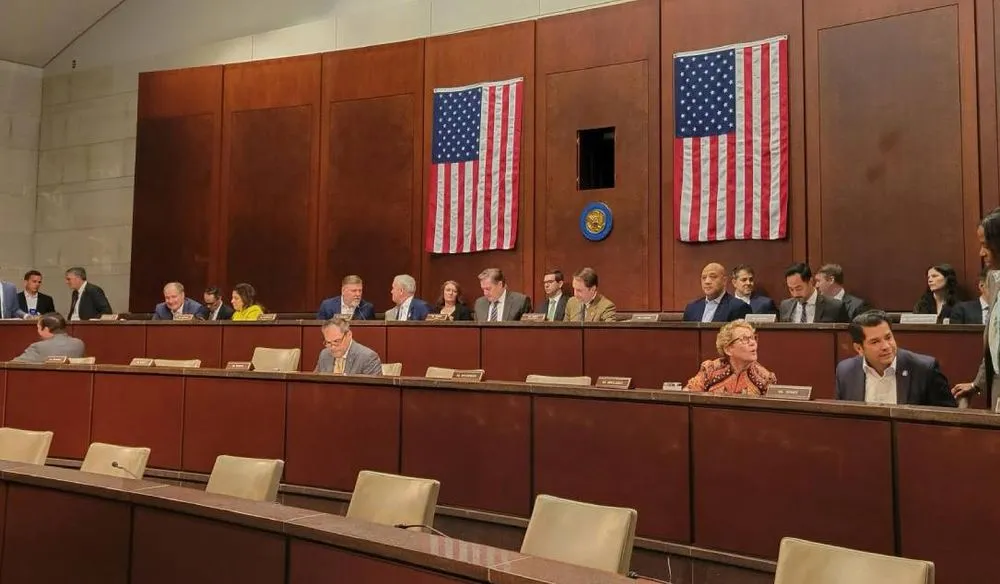House committee approves bill that would renew Section 702 surveillance
The House Intelligence Committee on Thursday unanimously approved legislation to reauthorize a controversial surveillance program, setting up a clash with a competing congressional panel.
Lawmakers okayed by voice vote the FISA Reform and Reauthorization Act of 2023 after a quick markup hearing. No members offered amendments.
The vote came the day after the House Judiciary Committee approved its legislation to reauthorize the spying tools contained in what is known as Section 702 of the Foreign Intelligence Act.
The Judiciary shares jurisdiction over the statute and its measure included a strict warrant for the U.S. spy community, especially the FBI, to access the cache of data collected under the statute by the National Security Agency — a mandate the White House has strenuously objected to.
A bipartisan chorus for a warrant requirement has grown in recent years following a string of recent revelations that the FBI conducted tens of thousands of improper searches of the NSA database for information on Americans, including a member of the Intelligence panel and an unnamed U.S. senator.
Intelligence Chairman Mike Turner (R-OH) spent a significant portion of his opening statement skewering the Judiciary bill.
“Their bill spends more time expanding the constitutional rights of foreigners who travel in and out of the United States. It creates civil liability for telecommunications companies that work with our intelligence community voluntarily. And, curiously, it provides immunity from prosecution for some horrific crimes if they're discovered in 702 foreign intelligence collection,” according to Turner, who created a working group of policymakers that included Judiciary members in the hopes of reaching a consensus bill.
“These are provisions of their bill that they're going to have to explain,” he added. “Our bill is targeted toward FBI abuses, protecting the American citizens and ensuring that we can address national security threats to our nation.”
Speaking to reporters on Wednesday, Turner said Judiciary members have not “been well served. And are probably unaware of the extension of constitutional rights to foreigners and illegals.”
While the two bills do feature many similar provisions, the Intelligence proposal does not include a warrant requirement. Instead, it would prohibit FBI queries conducted to uncover “evidence of a crime,” which are not related to foreign intelligence.
Rep. Jim Himes (CT), the panel’s top Democrat, said the ban would make the distinction that 702 is to be used on foreign intelligence targets “crystal clear,” helping further drive down the search violations by FBI analysts about what is permissible.
Himes said the legislation was “not the perfect bill for anybody sitting up here but this is how one legislates in a wide and diverse body. Each and every one of us would make individual changes.”
“And because we don't purport to have the perfect bill, merely the best bill, this bill, like previous FISA authorizations, will sunset, giving a future Congress another opportunity to consider the value of the program and reforms as this process proceeds.”
Rep. Dan Crenshaw (R-TX) heaped criticism on Judiciary's legislation, calling its reforms "downright terrifying.”
"For us to say that we should dismantle one of our primary intelligence collection tools ... is so completely insane that I wish it were funnier but it's not. This is the one big disagreement in Congress that actually should frighten the hell out of us,” he said.
It’s unclear what the path forward is now that the two bills have cleared out of committee. Congressional leaders attached a short-term extension of Section 702, which is slated to sunset at the end of the year, to the annual defense policy bill.
It’s possible that House Speaker Mike Johnson (R-LA) could allow both measures to receive a floor vote, with the bill that garners the largest majority becoming the one the GOP unites behind.
If that happens, Jordan, once a candidate for speaker himself, could wield tremendous influence over the outcome.
Martin Matishak
is the senior cybersecurity reporter for The Record. Prior to joining Recorded Future News in 2021, he spent more than five years at Politico, where he covered digital and national security developments across Capitol Hill, the Pentagon and the U.S. intelligence community. He previously was a reporter at The Hill, National Journal Group and Inside Washington Publishers.



